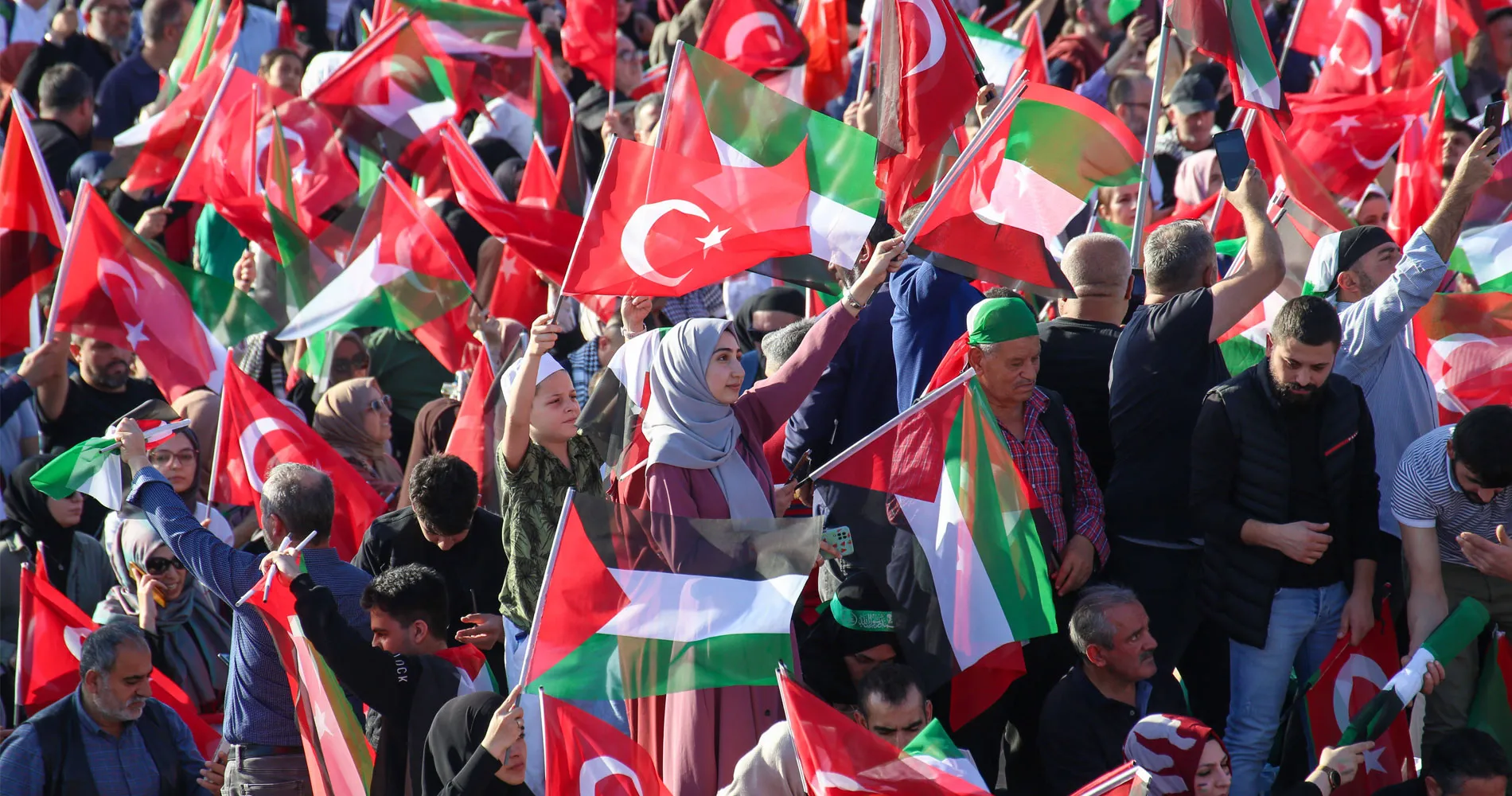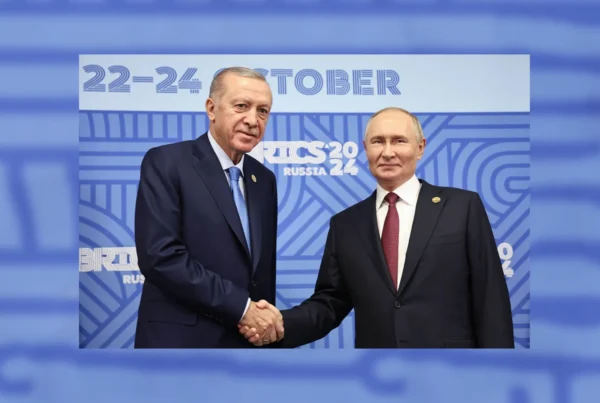In a dramatic turn of events, Turkey announced a ban on all trade with Israel in response to the ongoing war of the Netanyahu regime against the Palestinians. Experts agree that the trade ban will affect Israel more than Turkey. Prices for goods and services in Israel will rise and increase the pressure on Netanyahu to back down from his plans to attack Rafah, or, risk losing his grip on power. Turkey’s Foreign Minister Fidan called on the solidarity of all Muslim countries at the 15th Summit of OIC in Banjul, Gambia.
Meric Sentuna Kalaycioglu
6 May 2024
Arabic version | German version | Spanish version
Erdogan has repeatedly called on Israel to stop the genocide in Gaza and has likened PM Netanyahu to Hitler, naming him “the butcher of Gaza”. On 2 May, Turkey imposed a total trade ban on Israel and has announced its intention to submit an application to join South Africa’s genocide case against Israel at the International Court of Justice (ICJ). On 4 May, Turkey’s Foreign Minister Hakan Fidan has called on the solidary of all Muslim countries at the 15th Summit of the Organization of Islamic Cooperation (OIC) in Banjul, the capital of Gambia, stating that none of the members had the right to resolve their differences over the “blood of the Palestinians.” If Muslim countries worked together, they could achieve results via diplomatic and coercive measures.
With this move, Turkey has significantly upped the pressure on Israel to agree to a ceasefire in Gaza and to opening humanitarian corridors for Gaza’s starving civilian population. Turkey wants to hold Israel accountable for the genocide in Gaza and the settler violence in the occupied West Bank. A senior UN official at the UN Food and Agriculture Organization (FAO) has stated that now “a full-blown famine” is unfolding in north Gaza.
Leading up to Turkey’s total trade ban, a range of punitive measures, including diplomatic, military and economic sanctions were imposed. These included the expulsion of the Israeli ambassador, the recall of Turkey’s ambassador to Israel, and suspension of all military cooperation between the two countries. Turkey also vowed to provide diplomatic support to the Palestinians and push for international action against Israel at the United Nations. Moreover, Turkey stands out as one of the largest contributors of aid to Gaza, alongside the United Arab Emirates (UAE). With this latest move Turkey has effectively divorced Israel politically, economically and diplomatically. The two countries had a trade volume of USD 6.8 billion in 2023.
Trade policy shifts amid political backlash
Turkey Exporters Assembly data indicated an increase in trade between the two countries in the aftermath of the 7 October attacks. This continued commercial engagement with Israel during the conflict sparked a domestic backlash against the Turkish government. Many view Ankara’s initial stance as contributing to a significant setback of the ruling party in local elections held on 31 March where, for the first time in Erdogan’s 21-year tenure, his party faced widespread defeat. Despite securing third place in the polls, the Islamist New Welfare Party (YRP) emerged as a prominent voice criticizing President Erdogan for his failure to sever trade ties with Israel.
This underscores the growing influence of domestic politics on Turkey’s trade policies and raises questions about the government’s approach to managing international relations amid shifting political landscapes. As of 9 April, following six months of public outcry over Ankara’s reluctance to halt trade with Israel, the government finally yielded to mounting pressure and export restrictions were imposed. With Erdogan’s latest move to ban all trade, the break with Israel is complete.
Tit-for-Tat escalation
Turkey’s trade ministry asserted that the trade ban will continue “until the Israeli government allows an uninterrupted and sufficient flow of humanitarian aid to Gaza.”
The economic sanctions originally imposed by Turkey drew a swift and sharp response from Israeli Foreign Minister, Israel Katz. He declared imminent retaliatory measures, instructing Israel’s foreign ministry to compile a comprehensive list of Turkish products slated for a ban. After the announcement of Turkey’s total trade ban, Katz asserted that Erdoğan was “breaking agreements by blocking ports for Israeli imports and exports”.
Israel intends to request assistance from the United States and other allies in an effort to find new partners to trade with following Turkeys total trade ban. Additionally, Israel plans to petition the US Congress to “impose sanctions accordingly”.
The Times of Israel reported on 4 May that Israel would limit Turkish trade with the Palestinian Authority as a retaliatory measure to Ankara’s decision to halt all trade with the Jewish state. FM Katz had strong words for Erdogan: “The dictator Erdogan who wants to be sultan is working in the service of Hamas, breaching agreements and seeking to harm Israel, but is in fact harming Palestinians he purports to want to help”.
Netanyahu’s Tactical Dilemma
Until a ceasefire is reached, Netanyahu may choose to adopt further diplomatic maneuvers and economic countermeasures to counter Turkey’s actions. Israel could seek to rally support from its allies in the region and beyond, leveraging its strategic partnerships to isolate Turkey diplomatically and undermine its credibility on the international stage. Yet this move could prove difficult, as Turkey is an important NATO member and ally of the West.
According to the Israel Builders Association, approximately 70 percent of Israel’s iron and around one-third of its cement, primarily utilized in local construction, is imported from Turkey. Additionally, Israel is a key destination for Turkish steel exports. Although Israel could seek alternatives, it will be time-consuming to find suitable substitutes, which would be more costly. Economists agree that Israel will suffer more from this total trade ban than will Turkey.
Only time will tell if Turkey’s divorce from Israel will help bring about the desired result: a ceafire and humanitarian help to the suffering civilian population of Gaza. If other countries join Turkey’s lead, the pressure on Netanyahu and his war cabinet might be the straw that breaks the camel’s back.







